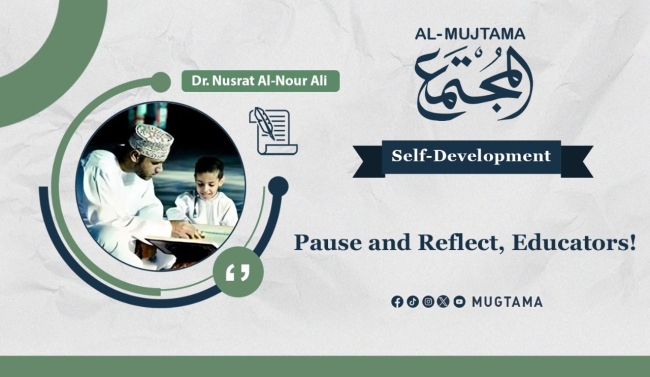The diversity among creations is a universal law and a sign of the perfection of Allah. He made diversity one of His signs, demonstrating His immense capability. Without this diversity, creation would cease to exist. For instance, one nation is physically strong, excelling in demanding construction work to build the earth, another is skilled in aesthetic crafts like sculpture and painting, and yet another excels in technology and science. Together, they complement each other, with no one being superior to the other.
People are created to inhabit and develop the earth according to their natural dispositions. Allah grants each creation unique talents, the wisdom behind which may only be known to a few. This diversity in human talents and capabilities is a secret of existence that Allah commands us to ponder.
This introduction reflects the attitude of some educators today who impose strict control over their children's lives, particularly their academic futures. In their view, anyone who does not graduate as a doctor or engineer has no claim to knowledge, as life has only one face—if that face disappears, so does life. Unfortunately, this attitude exists among both the elite and others who follow their path, driven by a desire for social prestige.
It is important to recognize that sciences are divided into three streams: experimental sciences, such as medicine, engineering, and technology, which address civil life; theoretical sciences, like history, geography, psychology, and sociology, which address culture and thought; and linguistic sciences, led by the Arabic language with its phonetic, morphological, grammatical, and rhetorical systems, serving as the key to understanding divine revelation and transmitting it to others in their living languages.
Thus, these sciences should not be viewed as mere intellectual luxuries, nor should those pursuing these fertile fields of knowledge be seen as lacking intellect or understanding. Many students find, after joining certain fields of study chosen by their families, that these studies do not align with their intellectual or psychological capacities. This often leads to internal conflict, wasted time, and sometimes a drastic shift in their educational paths.
What we as educators must realize and communicate to others is that life has many facets, and success can be achieved in numerous ways without clashing with universal laws. These laws, established by the Creator long ago, reflect the diversity of talents, abilities, and dispositions among humans—one of Allah’s signs. Humanity’s role is to harmonize with the broader rhythm of the universe.
I read in the news about a student in an Arab country who attempted suicide before receiving their final exam results, a girl who set herself on fire out of fear of disgrace from her grades, and another who argued with his father over his results before falling from a building to end his life.
Life is based on the law of causality; we must take the necessary steps for success to the best of our human ability and within our available means. However, it’s essential to understand that the philosophy of success inherently involves failure. A lion succeeds in only 25% of its hunting attempts, meaning it fails 75% of the time. Yet, this low success rate does not deter the lion from trying. This is the universal "law of wasted efforts." Why then do humans reject this law and see failure in a single attempt as the ultimate defeat, or believe that not joining a specific field of study constitutes failure?
True failure lies in ceasing to try, not in failing at an attempt. Failure also stems from not understanding ourselves, valuing our abilities, and placing ourselves in the right position. Pessimistic sayings in our society, like the famous verse by Al-Mutanabbi: "Not everything one desires can be achieved; winds blow contrary to what ships wish," can create a sense of despair and inaction. But the real question is: Did you wish for what suits you before setting sail?
Countless ships have crossed tumultuous seas without being stopped by the wind; instead, the wind assisted them toward their goal.
Once, I told a friend who was harshly scolding her child for poor grades in a subject: "Praise be to Allah, who made my mother illiterate, unable to read or write. If she were like you, I wouldn’t be who I am today." My mother taught me that life has many colors and that what is lost today may return tomorrow. She said, "Do not grieve over what you’ve lost, or you’ll lose what’s still in your hands." Life’s rules are based on perseverance, regardless of the difficulties we face. Isn’t humanity created to endure hardship?
Takeaways:
- Develop a philosophy like water: if blocked, it either penetrates or changes its course.
- To succeed in life, raise your aspirations as high as possible but lower your expectations to the minimum.
- Our children don’t need to be carbon copies of us or others. Just as we were not copies of our parents, let us be gentle with our children and allow them the freedom to choose their paths. Intelligence is not a single entity nor confined to a specific skill.
A good educator discovers talents, nurtures them, instills a love for knowledge in its various fields, and helps students understand life’s values and laws. They do not merely evaluate grades. Life requires diverse fields of knowledge and professions. Academic success is just one part of life’s competencies and does not necessarily encompass all of them.
-------------------------------------------------------------


